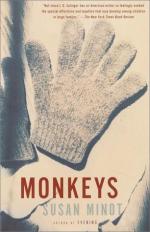|
This section contains 736 words (approx. 3 pages at 300 words per page) |

|
SOURCE: Duchêne, Anne. “A World of Walking Wounded.” Times Literary Supplement, no. 4699 (23 April 1993): 23.
In the following review, Duchêne compares Folly to Edith Wharton's novels of manners, highlighting similarities between their protagonists and tone.
Writing in 1925 about the craft of fiction, Edith Wharton decried, amid much else, “that common symptom of immaturity, the dread of doing what has been done before.” By this measure the young American writer, Susan Minot, in Folly—her third, very short but longest book so far—can be seen as quite remarkably mature. She does what many writers have done before, and what a great many more have failed to achieve: she floats a delicious social comedy on an ocean of private pain and desolation.
The story covers twenty years in Boston society, from Christmas 1917, when the young men are moving off, in a flurry of modest chivalry, to be officers in...
|
This section contains 736 words (approx. 3 pages at 300 words per page) |

|


